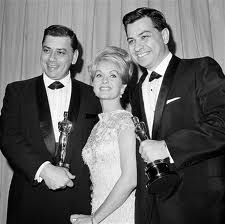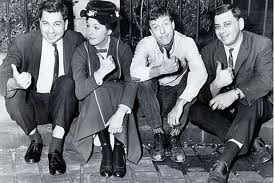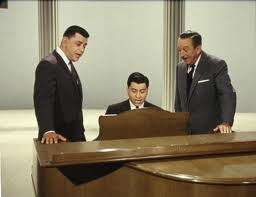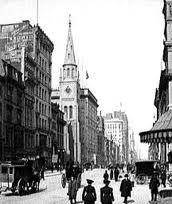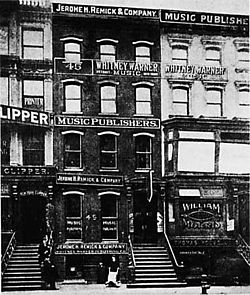I recently heard about the death of Robert Sherman and wondered who he was. He and his brother, Richard, composed some of the best loved Disney songs of the day.
Robert Bernard Sherman was born December 19, 1925. His brother, Richard Morton Sherman was born June 12, 1928. Their father, Al, was a well known Tin Pan Alley songwriter. The family moved a lot in their formative years. In high school the brothers both learned how to play a variety of instruments. While still in those high school years, Robert won much acclaim for the radio and stage programs he wrote and produced.
Robert joined the Army in 1943 while he was still seventeen. He was awarded a purple heart and it was during this time that he developed a fascination with England. Both brothers attended Bard College in New York State. Richard studied music and Robert majored in English Literature and Art. Robert served as editor for the college newspaper and wrote his first two novels while in school, before graduating in 1949.
After finishing schools the brothers went to work writing songs with their father. Richard was drafted into the Army in 1953, during the Korean War. He was not in combat, but joined the band and glee club during which time he served as their conductor. While he was in the service his brother, Robert, worked with other musicians. In 1958 the brothers founded Music World Corporation.
Their first Top Ten Hit was “Tall Paul” with Annette Funicello. Walt Disney was impressed when he heard the song and eventually hired the brothers to work with his Wonderland Music Company.
In 1965 the brothers both won an Oscar for separate films, including Mary Poppins. They won Oscars for the songs “Feed the Birds” and “Supercalifragilisticexpialidocious”. They worked directly with Walt Disney until his death a year later and then freelanced their talents.
They wrote songs for the movies: “The Jungle Book”, “The Aristocats”, both versions of “The Parent Trap”, “The Many Adventures of Winnie the Pooh”, “Charlotte’s Web”, and “Bedknobs and Broomsticks”. Other hits songs included “Pineapple Princess” and “Let’s Get Together”. They also wrote the song “It’s A Small World” for the Disney theme park.
In 1974 they wrote the musical “Over Here!” It became the largest grossing original Broadway Musical of the Year and was nominated for a Tony.
“The Tigger Movie” {2000} was the first Disney movie score they’d written in twenty-nine years. They also wrote the songs for the stage productions of “Chitty Chitty Bang Bang” and “Mary Poppins: The Stage Musical.”
In total the brothers earned 9 Academy Award nominations, 2 Grammy Awards, 4 Grammy Award nominations and 23 gold and platinum albums. In June 2005 they were inducted into the Songwriters Hall of Fame. They were bestowed honorary doctorates from Lincoln College in 1990 and Bard College in 2011.
Richard and Robert Sherman wrote more motion picture musical song scores than any other team.
Robert married Joyce Sasner and had four children. The year after her 2001 death, he moved to London, England. The brothers were able to still compose together with the use of email, the fax machine and frequent visits. Richard married Elizabeth Gluck and they had two children.
In 2002 Robert had his first exhibition for the paintings he’d been creating all his life. He wrote his autobiography “Moose” in 2008. In May 2009 a documentary was released on them called “The Boys: The Sherman Brothers’ Story”.
The brothers were presented with a Window on Mainstreet Disneyland for their contribution to Disney theme parks.
Robert died recently on March 5, 2012.
